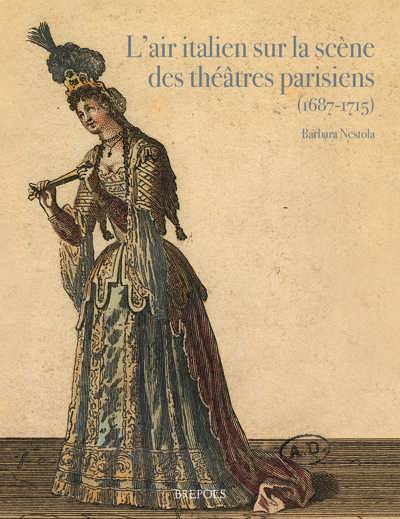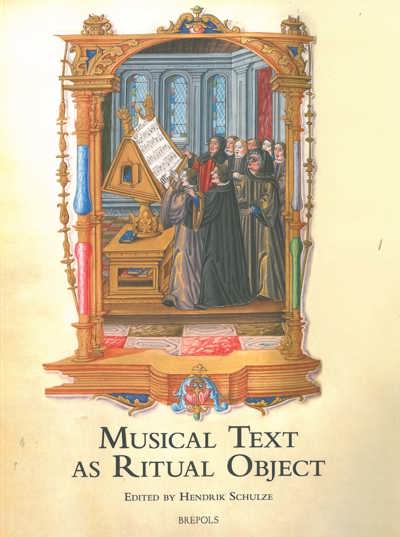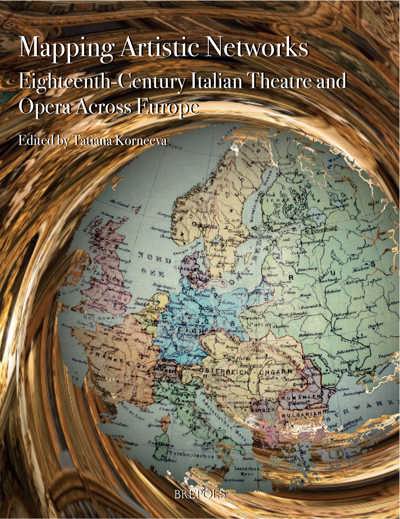
The Beginnings of Opera in Europe
Origins, Adaptations, and Cultural Exchange
Nastasia Heckendorff, Michael Klaper (eds)
- Pages: 337 p.
- Size:216 x 280 mm
- Illustrations:2 b/w, 12 col., 7 tables b/w., 2 tables col., 1 musical example
- Language(s):English, German, Italian
- Publication Year:2026
- € 100,00 EXCL. VAT RETAIL PRICE
- ISBN: 978-2-503-58364-8
- Paperback
- Forthcoming (May/26)
*How to pre-order?
This is the first book-length publication dealing with the different beginnings of opera in its homeland Italy as well as in other parts of Europe.
Nastasia Heckendorff is a postdoctoral researcher at the Alban Berg Foundation in Vienna. She completed her PhD in 2024 with a study on Marco Marazzoli and opera’s political dimensions in the 17th century. Her research focuses on opera and music theater (17th and early 20th centuries), authorship, and creative processes. Together with Michael Klaper, she has edited the volume Cantatas on Texts by Francesco Buti (1606–1682) (A-R Editions, 2021), and she has been awarded numerous fellowships, amongst others, from the German Historical Institute in Rome and Yale University.
Michael Klaper is associate professor for Musicology at the Friedrich Schiller University in Jena (Germany). His main research area is the music of pre-modern times, especially liturgical music, secular song, and musical theater, with an emphasis on cultural transfer and the relationship of text and music. Together with Barbara Nestola and Sara Elisa Stangalino he is the editor of the Parisian version of Francesco Cavalli’s Xerse (1660) for Bärenreiter (2025). His latest book publication is Giovanni Bentivoglio. Die italienische Musikkultur im Frankreich der zweiten Hälfte des 17. Jahrhunderts (LIM, 2022).
This is the first book dedicated to the early history of opera in Europe from a comparative perspective. It takes into account not only the various beginnings of opera in Italy around 1600 (Florence, Rome, Mantua), but also the mechanisms of reception and adaptation of the new genre outside of Italy in the following decades (in the German-speaking realm, and in the Commonwealth of Poland and Lithuania). Questions of genre and its terminology are discussed as well as the history, function, and contents of librettos and their distinctive linguistic and structural devices. Special attention is paid to issues of performance practice, such as the assignation of certain types of roles to certain types of singers, and staging. In order to broaden this perspective, the influence of Spanish 17th-century spoken drama on the early Venetian opera is explored. Furthermore, the beginnings of regional operatic traditions outside of Italy (such as in Spain and France) play a central role, along with the specifically English concept of ‘dramatic opera’, and the question of music in spoken drama. In this way, new and fascinating insights can be gained into opera in its initial phase (roughly from 1600 to 1680), including its development and regional styles, its acceptance or rejection, and the critical discourse surrounding the genre.
Introduction
Nastasia Heckendorff/Michael Klaper
Prologue: Encountering Opera
Margaret Murata
1. The Libretto
Funzioni e ruolo del libretto
Paolo Fabbri
Argomenti als Schwellentexte in italienischen Libretti des 17. Jahrhunderts
Albert Gier
2. The Beginnings of Opera in Italy
‘Fa’ riflesso al mio discorso’: ‘Singing’ and ‘Speaking’ in Monteverdi’s Operas
Tim Carter
Knabensänger in der frühen römischen Oper – Aspekte der Gattungsgeschichte und Aufführungspraxis
Nastasia Heckendorff
‘Un contralto per fare una vecchia’: Representations of the ‘Old Woman’ in Early Venetian Opera
Michael Klaper
3. Reception, Adaptation, and Regional Traditions Outside of Italy
The Earliest Adaptations of Italian Musical Drama in Salzburg, Prague, Vienna, and Innsbruck
Herbert Seifert
Ladislaus Sigismund Vasa (1595‒1648) and the Beginnings of Opera in the Commonwealth of Poland and Lithuania
Barbara Przybyszewska-Jarmińska
Schütz, Opitz und die Dafne (1627) – Die frühe Entwicklung des dramma per musica in Italien und im deutschsprachigen Raum im Vergleich
Hanna Viehöfer-Jürgens
The Work of Opera in the Spanish Dominions
Louise Stein
Vocalité à la française, du ballet de cour à l’opéra
Catherine Massip
Speaking Mortals and Singing Spirits: Concepts and Practice of English Dramatic Opera in the Seventeenth Century
Martin Adams
4. Opera and Other Literary Genres
Music in Early Modern Drama
Irmgard Scheitler
Platani e regine (I): The Roots of Dramatic Structure in Nicolò Minato and Francesco Cavalli’s Persian Cycle (1655‒59)
Sara Elisa Stangalino
Platani e regine (II): Nicolò Minato and Francesco Cavalli’s Persian Cycle (1655‒59) – The Roots of a New Aesthetics of Aria
Hendrik Schulze




